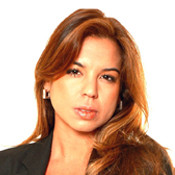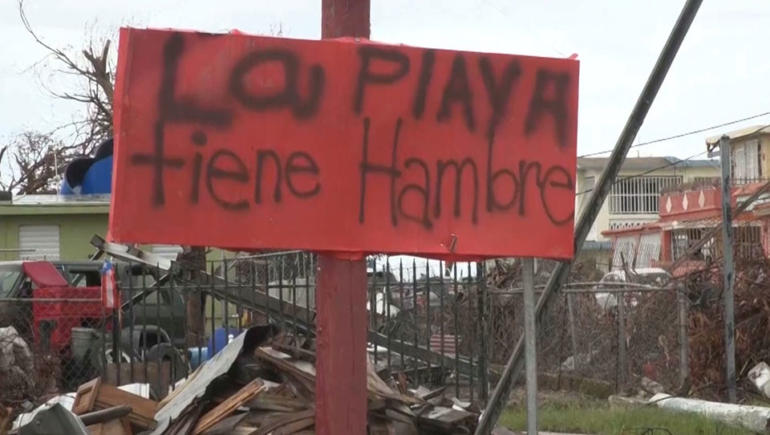Puerto Ricans have come away from the disaster of Hurricane Maria with a clear-eyed view of reality: That they are the authors of their future.
Tired of politics, government bureaucracy and mismanagement, they learned to rely on each other — their families and community — to rebuild and survive.
CGTN’s Nitza Soledad Perez reports.
Carmen Nunez considers herself one of the lucky ones. At age 75, she suffers from stage four chronic kidney disease. For five months, after Hurricane Maria left her town without power, her son Xavier stepped up – and performed all the critical work involved to deliver her dialysis treatments manually.
Xavier Valentin, her son, said he felt overwhelmed, exhausted and afraid.
“The machine is electric. Before the storm, I would prepare it for the treatment, I connect her to it and in seven hours and fourteen minutes, she completes the treatment. I disconnect it and disinfect her. When power is out, I have to do it manually, the procedure needs to be done every three hours. So what I do once a day with electricity, I have to repeat four times without it.”
The community stepped in to help, too. Lines for food, gas, and ATM machines could be hours long during Hurricane Maria’s aftermath. “Imagine if I had to do the dialysis to her, and also had to wait in line to buy milk, bread, sausages. Thankfully, I have a friend that would always tell me ‘no, stay with your mom, I’ll stand in the lines and I bring you what you guys need,’” Xavier said.
That neighborly help fill a critical gap in the need for Xavier and his mother. Then a local NGO came along and offered true relief.
Rebecca Rodriguez works for Casa Pueblo. She heard of their need and helped deliver a solar system package to power Carmen’s home dialysis machine. It consists of four panels, two batteries, an inverter and the regulating system. “We wanted them to be safe. So when the electricity was gone, they could continue doing the therapies, the dialysis, without being worried that they could lose power while being connected and then switching to manual. It’s a very tedious process and dangerous as well, going from electric to manual.”
Across several towns, we kept hearing variations of the same story. For Rebecca it was all about self-empowerment, “Puerto Rico is rising on its own, without the government’s help. It’s been helped by those Puerto Ricans that live abroad, the ones that live in the US.”
From day one, locals began by cleaning up debris. Many felt that authorities were not doing enough. The Puerto Rican diaspora then stepped in, sending supplies and money — to help families and fund local organizations.
These islanders have endured mounting hardships during the past year. Many now realize that their revival depends primarily on their own strength and resourcefulness.
We know there were other dialysis patients who were not as fortunate as Carmen, and did not make it. The collapse of the electrical grid, the loss of communications and blocked roads made it impossible for many of the elderly in rural areas to access medical care. Even now, NGOs across the island continue to identify vulnerable patients. While the power grid was finally fully restored in August, it remains very unstable.
 CGTN America
CGTN America

